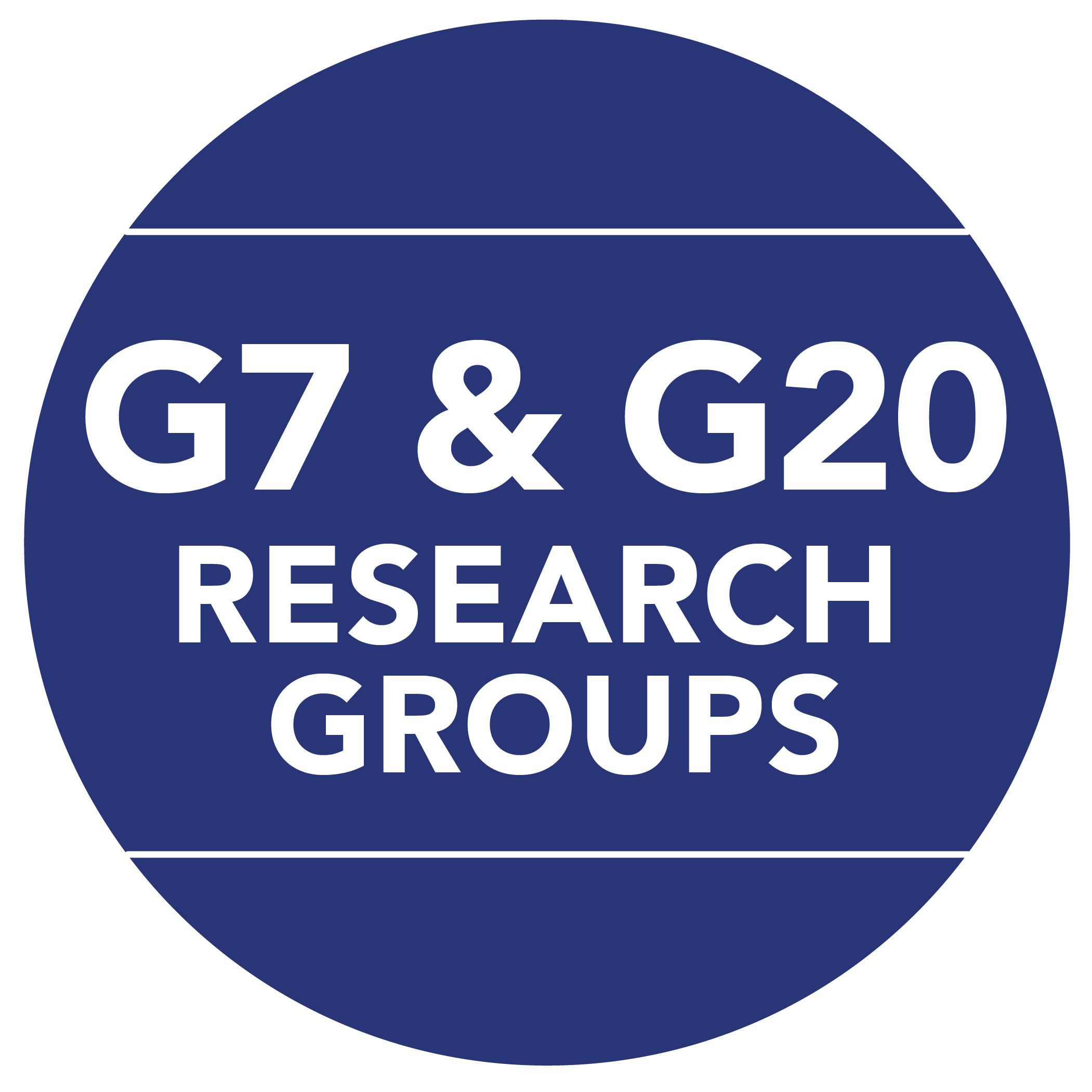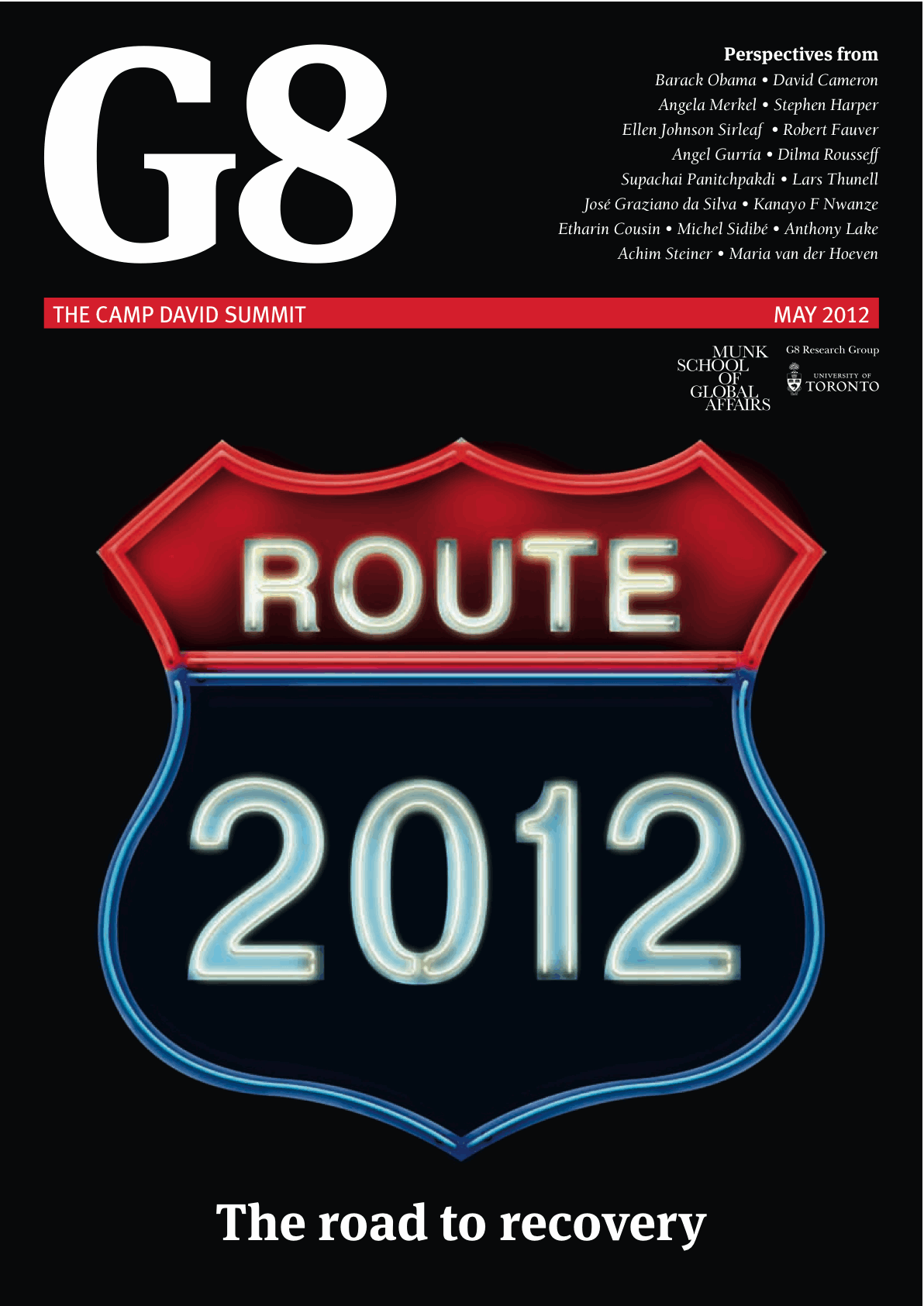

 |
 |
|

A time of transformation
Barack Obama, president, United States of America
US president and G8 Camp David Summit host Barack Obama looks back at a challenging decade that has seen incredible changes in political regimes and a real move towards international peace and security
From "The G8 Camp David Summit 2012: The Road to Recovery," edited by John Kirton and Madeline Koch,
published by Newsdesk Media Group and the G8 Research Group, 2012
To download a low-resolution pdf, click here.
This has been a difficult decade. But today, we stand at a crossroads of history with the chance to move decisively in the direction of peace. And in that effort, we have reason to hope. This year has been a time of extraordinary transformation. More nations have stepped forward to maintain international peace and security. And more individuals are claiming their universal right to live in freedom and dignity. One year ago, the hopes of the people of Tunisia were suppressed. But they chose the dignity of peaceful protest over the rule of an iron fist. A young market vendor lit a spark that took his own life, but through that act he ignited an international movement. The Gaddafi regime is over. Gbagbo, Ben Ali, Mubarak are no longer in power. Osama bin Laden is gone, and the idea that change could only come through violence has been buried with him. Something is happening in our world. The way things have been is not the way that they will be. The humiliating grip of corruption and tyranny is being prised open. Dictators are on notice. But let us remember: peace is hard. Progress can be reversed. Prosperity comes slowly. Societies can split apart. And we have more work to do. In Iran, we have seen a government that refuses to recognise the rights of its own people. Men and women and children are being tortured, detained and murdered by the Syrian regime.
We believe that each nation must chart its own course to fulfil the aspirations of its people, and America does not expect to agree with every party or person who expresses themselves politically. But we will always stand up for universal rights, rights that depend on elections that are free and fair, on governance that is transparent and accountable, respect for the rights of women and minorities, justice that is equal and fair.
Even as we confront these challenges of conflict and revolution, we must also remind ourselves that peace is not just the absence of war. True peace depends on creating the opportunity that makes life worth living. And to do that, we must confront the common enemies of humanity: nuclear weapons and poverty, ignorance and disease.
To lift the spectre of mass destruction, we must come together to pursue the peace and security of a world without nuclear weapons. America will continue to work for a ban on the testing of nuclear weapons and the production of the fissile material needed to make them. But even as we meet our obligations, we have strengthened the treaties and institutions that help to stop the spread of these weapons. And to do so, we must continue to hold accountable those nations that flout them.
The Iranian government cannot demonstrate that its programme is peaceful. It has not met its obligations and it rejects offers that would provide it with peaceful nuclear power. North Korea has yet to take concrete steps towards abandoning its weapons and continues belligerent action against South Korea. There is a future of greater opportunity for the people of these nations if their governments meet their international obligations. But if they continue down a path that is outside international law, they must be met with greater pressure and isolation.
To bring prosperity to our people, we must promote the growth that creates opportunity. In this effort, let us not forget that we have made enormous progress over the last several decades. Closed societies gave way to open markets. Innovation and entrepreneurship have transformed the way we live and the things that we do. And yet, three years ago, we were confronted with the worst financial crisis in eight decades. And that crisis proved a fact that has become clearer with each passing year – our fates are interconnected.
Today, we confront the challenges that have followed on the heels of that crisis. Around the world recovery is still fragile. Too many people are out of work. Too many others are struggling just to get by. We acted together to avert a depression in 2009.
We must take urgent and coordinated action once more. Here in the United States, I have announced a plan to put Americans back to work and jump-start our economy, at the same time as I am committed to substantially reducing our deficits over time. We stand with our European allies as they reshape their institutions and address their own fiscal challenges.
To preserve our planet, we must not put off action that climate change demands. We have to tap the power of science to save those resources that are scarce. And together, we must continue our work to build on the progress made in Copenhagen and Cancún, so that all the major economies here today follow through on the commitments that were made. Together, we must work to transform the energy that powers our economies, and support others as they move down that path.
And to make sure our societies reach their potential, we must allow our citizens to reach theirs. Together, we must harness the power of open societies and open economies.
Based on remarks made by President Obama at the UN General Assembly, as selected by the White House for this G8 Camp David Summit publication
|
This Information System is provided by the University of Toronto Library |
All contents copyright © 2024. University of Toronto unless otherwise stated. All rights reserved.